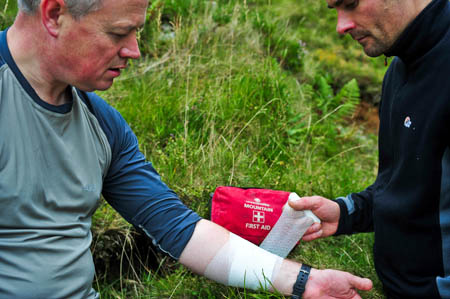Would you know how to cope with a medical emergency on the mountains?
We all hope we will never need to deal with such a situation, but forewarned is forearmed, and the British Mountaineering Council has just introduced a section on its website that could save a life. The launch coincides with today’s high-altitude medical symposium in Birmingham.
The medical pages of the BMC’s site cover not just how to deal with medical incidents, but how to avoid them in the first place. Special advice for those thinking of making the trek to the summit of Kilimanjaro is available, along with frostbite and how altitude affects issues such as contraception and menstruation.
There are also downloadable accident report sheets to keep in your first-aid kit.
David Hillebrandt, medical advisor to the BMC said: “The site is packed full of potentially life-saving advice and acts as a portal to external information sources. Whether you’re an experienced climber or a novice embarking on your first trek, you’ll find lots of relevant information and advice.”
The website includes advice and guidance on:
- what to do in mountain incidents
- climbing injuries and injury prevention
- travelling at high altitude
- nutritional considerations
- frostbite – how to avoid it and how to treat it
- specific guidance for Kilimanjaro trekkers
- accessing the Medex network of doctors for personal advice
There are also answers to vexing questions such as what to do if you get a tick; how tight is too tight when it comes to climbing shoes; and can you take a child to altitude.
The medical pages also provide links to other websites providing mountain medical advice.
The medical can be accessed through the main BMC website.
